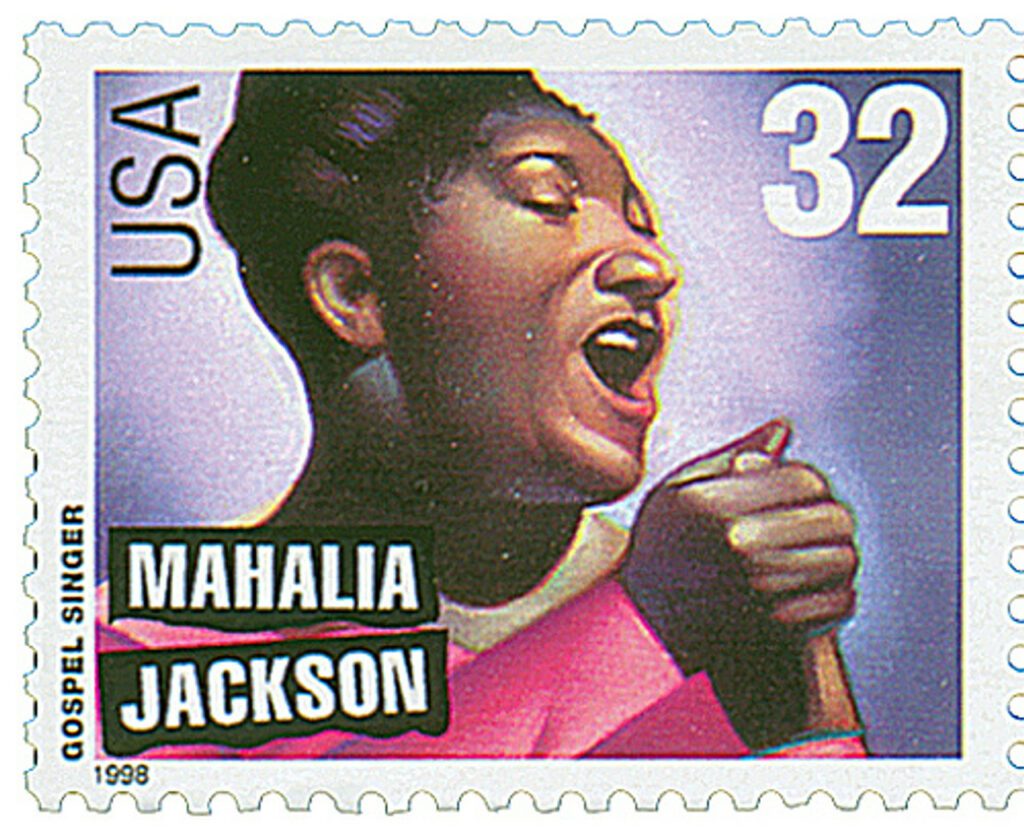
Mahalia (born Mahala) Jackson was born on October 26, 1911, in New Orleans, Louisiana. The best-known gospel singer in the world and one of the most influential vocalists of the 20th century, she received more acclaim than any other gospel singer. She is said to have been the vocal, physical, and spiritual symbol of religious music.
The daughter of a devout Baptist minister, Jackson started singing in the church choir when she was four years old. After her mother died, she lived with a strict aunt. She often took refuge at her church as a second home to get away from her aunt. Jackson worked scrubbing floors, filling mattresses, and making chairs. She attended school, but rarely made it through a whole week of classes as her family usually needed her to take on the work of her aunts. She eventually dropped out at the age of 10 to help the family full time.
However, the aunt Jackson lived with grew increasingly cruel toward her and she moved to Chicago to live with other aunts in 1928. Though she was initially homesick, Jackson once again found community and home at church. After impressing the congregation with her rendition of “Hand Me Down My Silver Trumpet, Gabriel,” she was invited to join the church choir. Jackson then joined the Johnson Quartet, the first black gospel group in Chicago.
Because they often sang at smaller churches that either couldn’t pay them, or couldn’t pay them much, Jackson worked a variety of jobs. She supported herself as a maid and laundress, and later running a beauty salon and florist shop. She considered herself a “fish and bread singer,” who worked for herself and God. She made her first recordings in 1931 and was also hired to sing solo at funerals and political rallies. She was soon the only professional gospel singer in the city, making $10 a week, which would be about $200 today.
When her grandfather came to visit one summer, he suffered a stroke and Jackson prayed that if he was spared, she’d never sing in a vaudeville theater again. After his health improved, she kept her promise and never performed at or attended theaters for the rest of her life. She even turned down such opportunities when she had only $1 to her name.
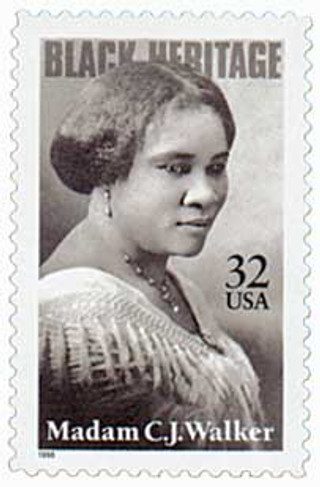
Mahalia cut her first record in 1937. Though it didn’t have high sales, it was placed in jukeboxes. She began touring with Thomas Dorsey, whom she used to perform alongside on street corners. A blues man, he had experience improvising and encouraged Jackson to develop her own melodies to their songs. Dorsey called her the “empress of gospel singers.” In 1946, she signed a contract to record for Apollo Records in New York City. Her third single released by Apollo, “Move On Up a Little Higher,” sold two million copies and became the first gospel song to reach number two on the Billboard charts. Her next two recordings, “Even Me” and “Dig a Little Deeper,” each sold about one million copies. Soon, the National Baptist Convention created the position of official soloist for her. After singing for Harry Truman’s campaign, she received her first invitation to the White House.
In 1948, Jackson performed at the first gospel revue at Carnegie Hall. She was praised for her performance and would headline the annual event for several years. Jackson first performed on TV in 1952, appearing on Ed Sullivan’s Toast of the Town. She then went on her first European tour, which she carried out in extreme pain, before coming home to find out she had sarcoidosis. Jackson moved to Columbia Records in 1954 and had her own radio and TV programs, both called The Mahalia Jackson Show. Jackson then appeared in movies, such as St. Louis Blues (1958) and Imitation of Life (1959).

For a decade, she performed 200 days a year, yet faced frustrating racial barriers. Outside of Chicago, banks wouldn’t cash her checks, so she had to be paid in cash – and carried around tens of thousands of dollars. When she bought a house in an all-white neighborhood, she received death threats and someone shot her front window the day she moved in. After meeting Martin Luther King Jr. in 1956, she frequently lent her talents to the Civil Rights movement. She sang and raised money for the United Negro College Fund, the Montgomery, Alabama, bus boycott, and the March on Washington, among many others. Jackson also paid tuition for several young people to go to college and opened a nondenominational temple in Chicago for people to learn gospel music.
After suffering health problems for many years, Jackson died on January 27, 1972, following a surgery.
| FREE printable This Day in History album pages Download a PDF of today’s article. Get a binder or other supplies to create your This Day in History album. |
Discover what else happened on This Day in History.

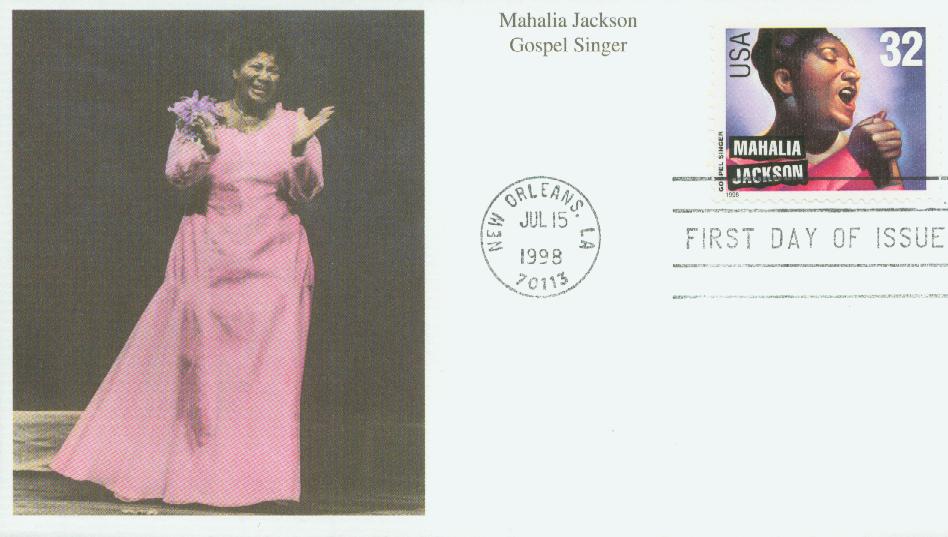
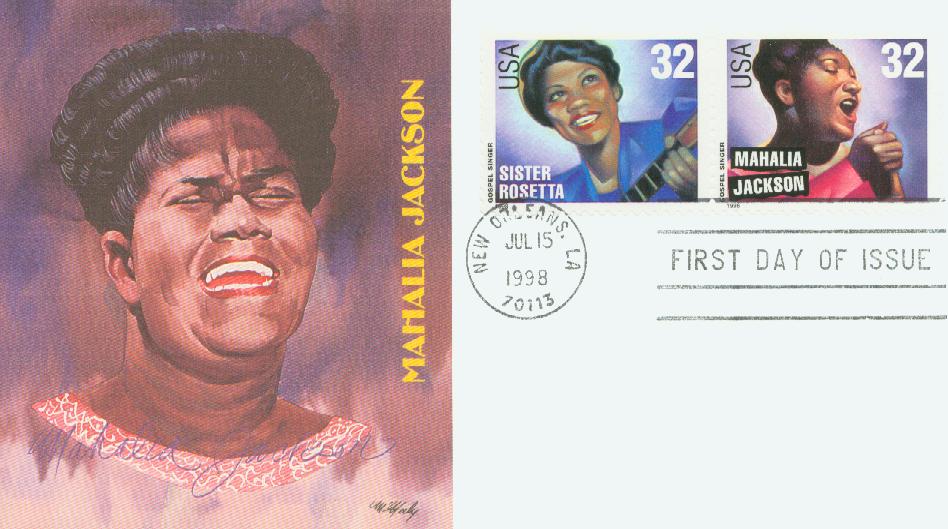
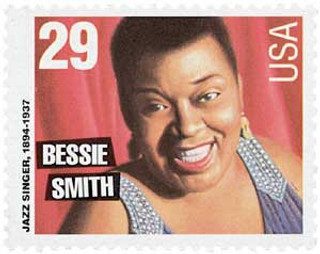


Wow no comments!!!
She could sing the Power down. Can’t wait to see her in Heavenly Places.
Thank you as always Mystic